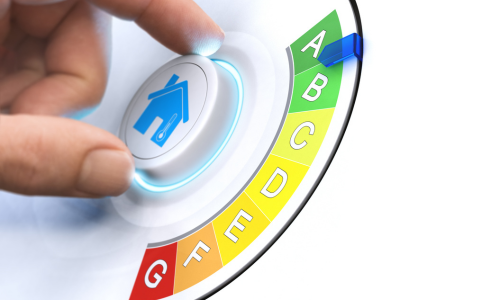
In today’s financial climate, it is as important as ever to understand where your money is being spent. One of the main sources of expenditure is energy, so it is important to fully understand your Energy Performance Certificate (EPC) rating. Let’s take a closer look at EPC ratings and what you can do to make your property more energy efficient.
Understanding EPC ratings
An EPC rating is a measure of a property’s energy efficiency and can vary depending on a range of factors, including insulation, heating systems, and renewable energy usage. The main purpose of an EPC rating is to inform potential buyers or renters about a property's energy efficiency.
It is a legal requirement for all properties available to buy or rent in the United Kingdom to have an EPC rating. An EPC rating lasts for 10 years, and if your EPC is older than this, a new one must be issued before the property can be made available to buy or rent. EPC ratings range from A to G, with the latter suggesting a property’s energy efficiency is poor. Common causes of a low EPC rating include poor insulation and inadequate heating systems.
The cost of a low EPC rating
A significant impact of a low EPC rating is higher energy bills. A property with a low level of energy efficiency will waste more energy, meaning more energy is required to heat the home, therefore resulting in higher bills.
A low EPC rating can hugely affect a property’s market value because it indicates that the home is not energy efficient. Potential buyers and renters tend to favour properties with higher EPC ratings because they are a more cost-effective solution, so a poor rating could make securing a sale at a good price more difficult.
How to improve your EPC rating
An energy audit can help you identify areas to improve your property's energy efficiency. A trained professional will give your property a thorough inspection, examining factors such as insulation, heating systems, and appliances. By highlighting potential areas for improvement, an audit can provide you with valuable insights into where energy-saving upgrades can be made.
After the energy audit has highlighted how energy efficiency could be improved, you should make the necessary changes to your property. Installing energy-saving technology such as LED lighting, smart thermostats, and energy-efficient appliances can help reduce energy waste and utility expenses. Additionally, improving your property's insulation and fixing any air leaks will enhance thermal efficiency and lessen the need for excessive heating. These energy-saving improvements will increase the market value of your property.
Final thoughts
Having a low EPC rating can result in higher energy bills and negatively impact the market value of your property. Improving your property’s EPC rating through energy-saving upgrades and improvements can help reduce energy waste, lower utility expenses, and increase the market value of the property.
Are you looking to move to a more energy-efficient home?